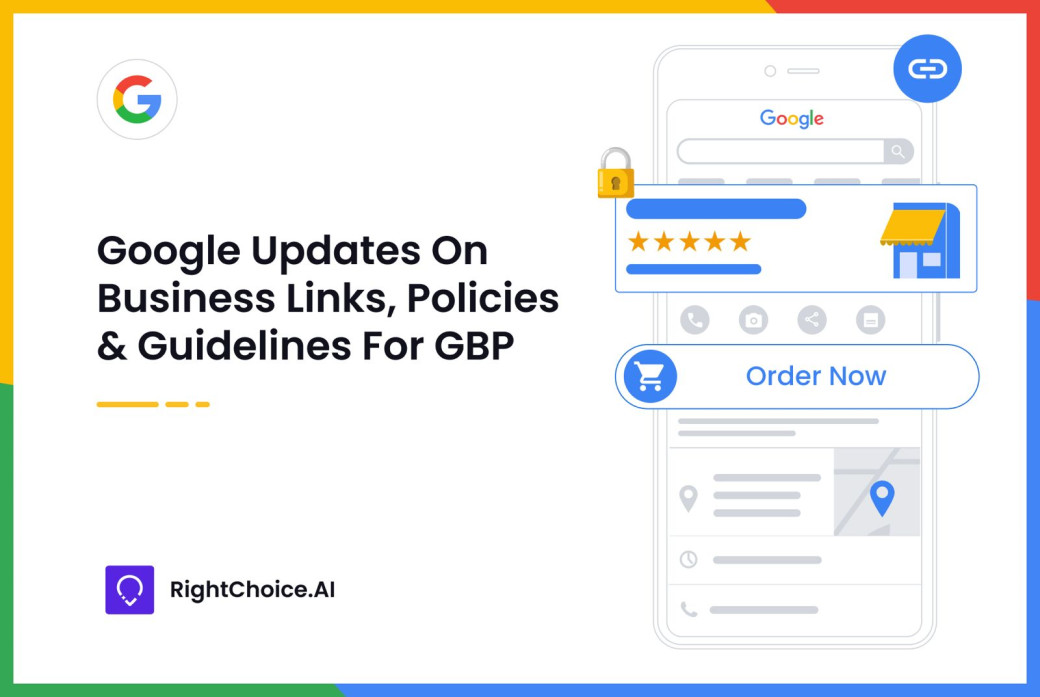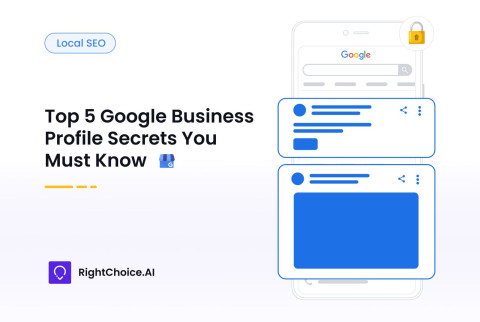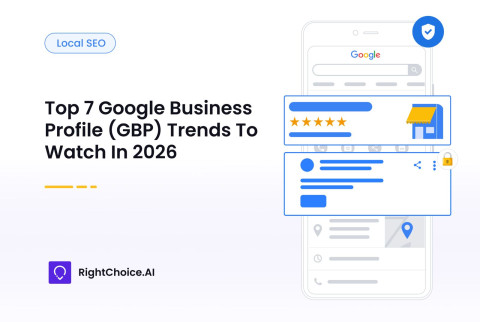Google has significantly expanded the Business Links Policies and Guidelines within the Google Business Profiles (GBP) Help Section. The document has now doubled in length, with the addition of several new sections.
Failing to comply with Google’s new Business Links Policies may result in your links being removed from your Google Business Profile (GBP).
For local business owners, marketers, and SEO professionals, these new rules are not just technical adjustments but essential requirements to remain compliant and visible on Google.
What’s New in Google Business Links Policies and Guidelines?
Google’s revised guidelines introduce four major policy areas that every business needs to understand:
- Dedicated landing pages for each location
- Direct action completion for links
- Restrictions on social media and indirect links
- Business links crawlability requirements
Let’s explore each of these updates in detail and understand their implications;
Dedicated Landing Pages Are Now Mandatory
For businesses with multiple locations, each link must connect to a location-specific page, not to the homepage or another location’s page.
- If your business has multiple locations, each link must go to the correct page for that branch.
- Avoid using generic homepages or links to other locations of the same brand.
Example: If a restaurant has outlets in London, Manchester, and Birmingham, the order link for Manchester must take customers to the Manchester order page, not the homepage or another branch.
This update aligns with Google’s broader mission of improving the user experience (UX) and ensuring that customers can quickly access relevant and accurate information without unnecessary steps.
Direct Action Completion is Required
The second key update is the Direct Action Completion guideline. Google emphasizes that action links in a Google Business Profile (GBP) must allow customers to complete the intended action seamlessly.
For example:
- An “Order” link must enable a customer to actually place and complete an order.
- A “Reserve” link must enable a user to book a table without additional redirects or incomplete functionality.
Direct action links reduce user friction and increase conversion rates. By eliminating unnecessary redirection, businesses build more trust and align with Google’s mission of improving user satisfaction. Local business links cannot be:
- Social media sites
- App store links
- Messaging links
- Link shorteners
Businesses that attempt to redirect users through social platforms or third-party apps risk having their links removed, which could negatively affect visibility and customer trust.
Invalid Business Link
At times, you may encounter an error message indicating that your business link is invalid or malformed. This usually happens when the link does not meet Google’s formatting standards.
Common causes of invalid links include:
- The link contains unnecessary spaces or special characters.
- The link includes backslashes (\), which are not supported in URLs.
- The link uses an incorrect or duplicate protocol, such as entering http://http:// at the beginning.
How to fix the issue:
Remove any extra spaces, unsupported symbols, backslashes, or duplicated protocols. Once corrected, your link should be accepted without errors.
New Business Links Crawlability Policy
The most detailed and technical update is Google’s new Business Links Crawlability Policy. This section explains how Google verifies the links provided in Business Profiles (GBP) to ensure they lead to valid and relevant webpages.
Key Definitions Introduced:
Link crawlability: This refers to Google’s ability to automatically access and scan the content of a given URL. It includes the ability to follow redirects and load all required elements such as scripts, stylesheets, and images.
Automated bot protection: Many websites use security mechanisms to block harmful traffic. While useful, these systems can also block Google’s verification crawlers if not configured correctly. Common examples include:
- Robots.txt files blocking paths
- Rate limiting or request throttling
- CAPTCHA challenges or login requirements
- IP address blocking
- User-Agent restrictions (blocking Google’s crawlers)
- Content cloaking (showing bots different content than human users)
If any of these prevent Google from accessing your page, your business link may be removed.
User-Agent: A User-Agent is a digital identifier that tells a website which type of client is visiting (e.g., Chrome browser, Google crawler, etc.).
HTTP status codes: Server responses that indicate whether a page loaded successfully (e.g., 200 OK) or failed (e.g., 404 Not Found, 500 Internal Server Error).
Crawlability Requirements
To comply with the policy, all business links must:
- Allow unrestricted access: Links cannot block Google’s crawlers with CAPTCHAs, login requirements, IP blocking, cloaking, or rate limiting.
- Be functional: Links must return a valid status code (200 OK) and cannot return errors such as 404 or 503.
- Fully loaded: Crawlers must be able to access all resources (CSS, JavaScript, images).
- Avoid Geo-blocking: Links cannot restrict access based on location or DNS provider settings.
A critical point here is that Google’s business link verification crawlers do not follow robots.txt rules, meaning traditional crawler-blocking techniques will not exempt business links from compliance.
Why These Updates Matter?
For business owners and local SEO professionals, these policy updates are more than technical adjustments; they represent a clear direction from Google:
- User-first experience: Links must take customers exactly where they need to go, without detours.
- Reliability and trust: Only functional, verifiable links will be accepted.
- Improved local SEO outcomes: Businesses that align with these policies will likely gain a competitive edge in search rankings and conversions.
Ignoring these Google updates could result in lost traffic, reduced conversions, and even suspension of critical action links that drive revenue.
Final Thoughts
Google’s updated Business Links Policies and Guidelines mark a significant shift in how businesses must approach their local SEO strategy. By enforcing stricter rules on landing pages, action completion, and crawlability, Google is reinforcing its commitment to accuracy, transparency, and customer convenience. For businesses, the message is clear: if you want to maintain visibility and credibility in local search, you must ensure your Google Business Profile (GBP) links are functional, verifiable, and user-focused.





